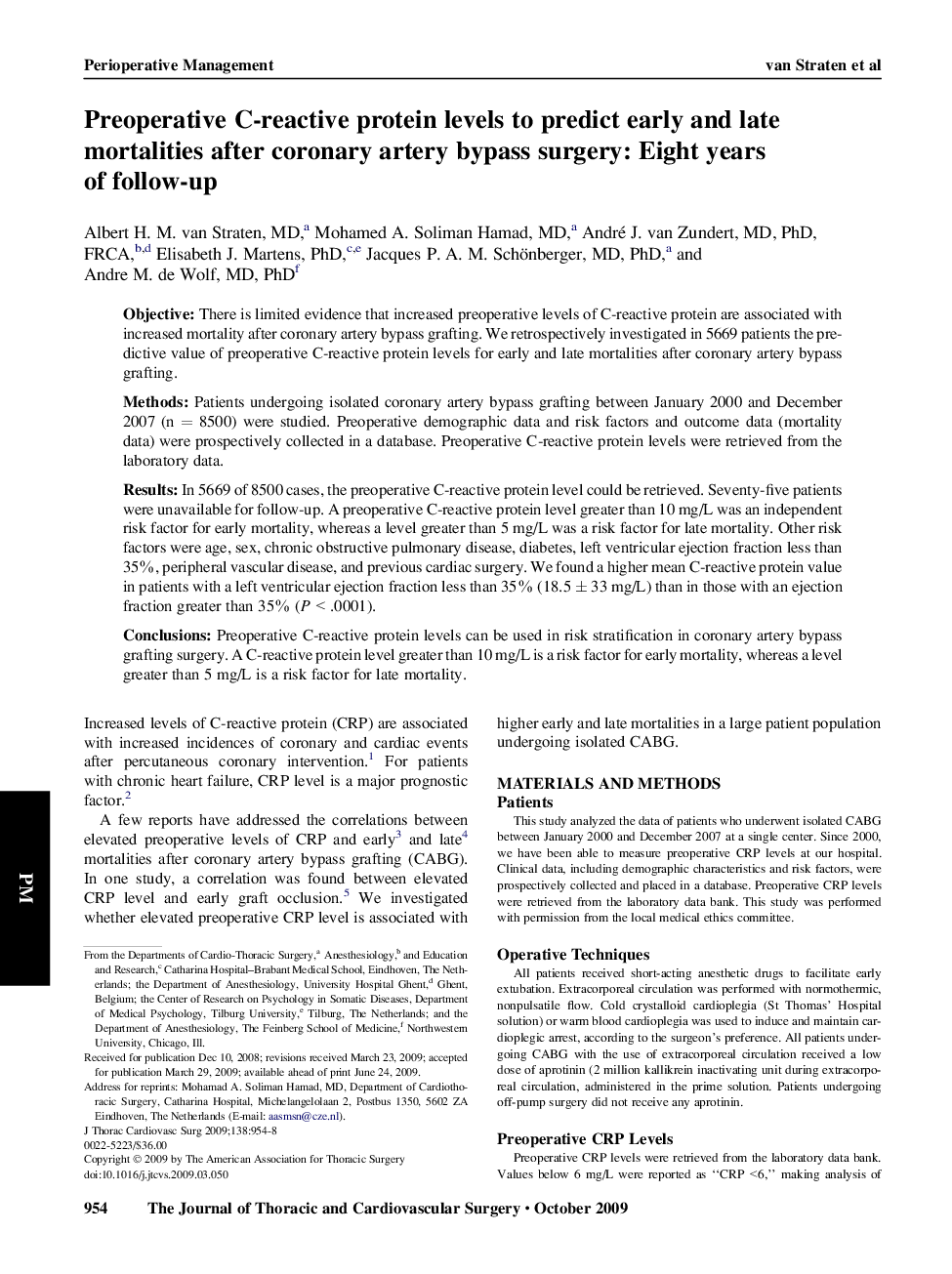| Article ID | Journal | Published Year | Pages | File Type |
|---|---|---|---|---|
| 2982098 | The Journal of Thoracic and Cardiovascular Surgery | 2009 | 5 Pages |
ObjectiveThere is limited evidence that increased preoperative levels of C-reactive protein are associated with increased mortality after coronary artery bypass grafting. We retrospectively investigated in 5669 patients the predictive value of preoperative C-reactive protein levels for early and late mortalities after coronary artery bypass grafting.MethodsPatients undergoing isolated coronary artery bypass grafting between January 2000 and December 2007 (n = 8500) were studied. Preoperative demographic data and risk factors and outcome data (mortality data) were prospectively collected in a database. Preoperative C-reactive protein levels were retrieved from the laboratory data.ResultsIn 5669 of 8500 cases, the preoperative C-reactive protein level could be retrieved. Seventy-five patients were unavailable for follow-up. A preoperative C-reactive protein level greater than 10 mg/L was an independent risk factor for early mortality, whereas a level greater than 5 mg/L was a risk factor for late mortality. Other risk factors were age, sex, chronic obstructive pulmonary disease, diabetes, left ventricular ejection fraction less than 35%, peripheral vascular disease, and previous cardiac surgery. We found a higher mean C-reactive protein value in patients with a left ventricular ejection fraction less than 35% (18.5 ± 33 mg/L) than in those with an ejection fraction greater than 35% (P < .0001).ConclusionsPreoperative C-reactive protein levels can be used in risk stratification in coronary artery bypass grafting surgery. A C-reactive protein level greater than 10 mg/L is a risk factor for early mortality, whereas a level greater than 5 mg/L is a risk factor for late mortality.
